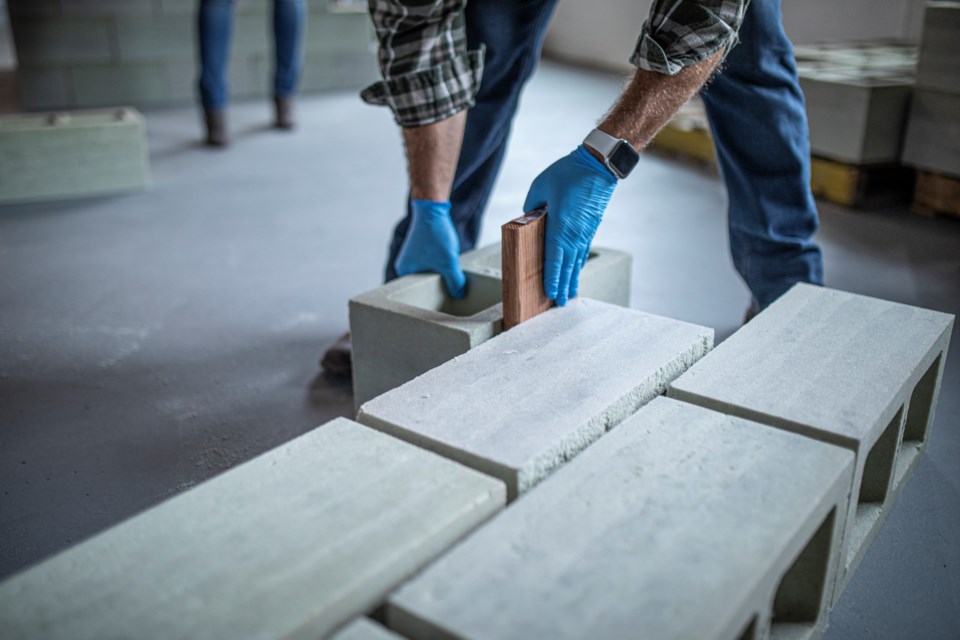The creation of cement — the primary ingredient in concrete — accounts for roughly 7% of the Earth’s CO2 emissions. A Longmont company is developing a solution, just a strong, but is CO2 negative.
In 2016, the Department of Defense sought solutions that would allow them to build protective structures in low-resource areas. The problem, concrete is expensive to transport to some locations. The DOD called for proposals that allowed for building materials to be engineered from living materials. The University of Colorado-Boulder answered the call.
At CU Boulder, a team of researchers looked at how nature built its “buildings,” from conk shells to coral reefs. The scientists then figured out a way to take the algae found in lakes, rivers, the ocean or anywhere else algae will grow and turn it into concrete.
Currently only producing concrete blocks — referred to as bio-blocks — Prometheus Materials licensed the intellectual property from CU Boulder.
Prometheus Materials established its headquarters in Longmont, to stay near the research team, said Loren Burnett, president, CEO and co-founder.
“This is basically zero carbon. What you see on the walls (pointing to the walls of the office space made from concrete) is massive amounts of CO2. That’s what we are doing, we are reducing the CO2 profile of cement and concrete,” Burnett said.
Within the concrete walls of the office space lies a small area dedicated to manufacturing and research.
The company grows different strains of algae and mixes it with water and sand to put into molds. It then creates concrete blocks. Soon it will be able to create ready-mix — which is made up of all the ingredients minus water.
“Our goal is to provide a complete replacement for cement and concrete with zero carbon bio-concrete,” Burnett said. “Our heartfelt mission here is to meaningfully reduce CO2 globally.”
According to Burnett, concrete is the second most used material on Earth, second only to water. By making a product that is CO2 negative — because the algae use CO2 during photosynthesis — Prometheus Materials hopes to drastically reduce carbon dioxide emissions across the world.
Prometheus Materials plans to license the process worldwide, allowing cement plants anywhere to replicate the process and eliminate their carbon footprint, Burnett said.
Prometheus Material also established a partnership with U.S. architecture firm Skidmore, Owings & Merrill — known for creating the Burj Khalifa in Dubai and New York’s One World Trade Center.
This partnership is important because it creates an industry demand for the material by people and companies which will place it into new structures, according to Burnett.
Prometheus Materials is just beginning its production phase which means it will only produce a small number of blocks at a time. It hopes to expand production in the next few years which would mean moving into a larger manufacturing plant. Burnett said the idea is to keep the facility in Longmont which would provide an estimated 50 to 100 people.
“We plan to put some people to work around here,” he stated.
The blocks have met compressive strengths of approximately 2,000 psi, “which meet numerous ASTM (American Society for Testing and Materials) standards for both structural and non-structural applications,” according to Prometheus Material’s website.
While meeting the strength requirements and a significant reduction in CO2 emissions, the blocks also can be ground up at the end of their lifespan and returned to the earth without harm, Burnett said.
“We want to put Longmont on the map of the circular economy, of sustainability, of really making an impact to the world. That’s what we are planning on doing … At the same time we are going to people to work,” Burnett said.



